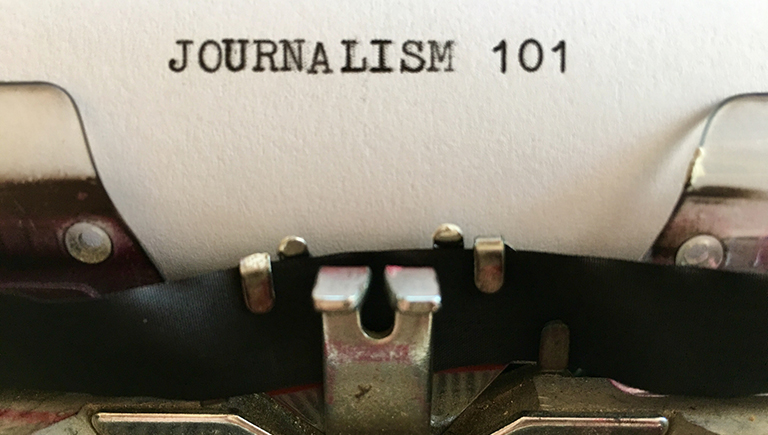
By Andy Butcher
Starting out in journalism back when it was still more widely viewed as a trade or a craft, rather than a profession, my first day in the newsroom of our local newspaper was as an awkward 16-year-old apprentice. I cringe as I look back on some of my early ineptitude, and I am belatedly appreciative of the grace extended to me by many interviewees and editors alike.
Goofs like asking a Roman Catholic priest whether he was married (“Only to the church,” he replied with good nature) are amusing. Some of my writing mistakes (like misusing the word “cuckold” in a theater review; I’d rather not explain, if that’s OK) are somewhat more embarrassing.
I hope I’ve become a little more seasoned and sophisticated in the half-century since then. Much has changed over those 50 years, but the basics of good journalism are still largely the same. Here’s 10 things I wish I had known earlier in my career, and still need to remind myself of, from time to time.
Admit your ignorance.
Don’t pretend to know more than you do when interviewing someone. It’s better to ask them to explain and have them think you’re ill-informed than hope you’ve got something right only to have many more people know you are ill-informed when you get something wrong in print.
Don’t be clever.
It’s nice to have people compliment your writing, but the point is the story, not the teller. It’s, “Look at this,” not, “Look at me!” Don’t be like those national anthem singers at baseball games who treat it as an audition rather than a rendition. Forget all the trills and flourishes and just sing the song, please.
Get something down.
Don’t wait for the muse to strike. In her super book about writing, Bird on Bird, author Anne Lamott talks about the importance of weak first drafts (only she didn’t say weak). As they say, writing is rewriting, so just get something down on paper to work with. The longer you stare at a blank screen, the harder it gets. It’s easier to turn a moving ship.
Forget about objectivity.
It’s long been held up as the great journalistic virtue, but let’s be honest—our view of something is shaped by more than we may be aware of. I’m not saying we should intentionally be biased, but let’s acknowledge we are not all-knowing. Being fair is a more realistic goal.
Recognize your weaknesses.
Even the greatest athletes have to work on some aspects of their game where they are not as naturally gifted. I need to constantly remind myself to be on guard against run-on sentences, because being shorter can be sharper. (I have to constantly remind myself to be on guard against run-on sentences. Shorter can be sharper.)
Put it away.
Deadlines can be galvanizing: I’ve done my share of instant writing, filing news off the top of my head over the phone to copytakers, back in the day. But putting a piece aside overnight and reviewing it in the cold light of day can be helpful. What seemed like golden prose when you were working at the last-minute or late at night may seem more purple in the morning.
Read it aloud.
Or use software to do it for you. Either way, hearing the words can help you identify poor grammar or awkward construction in a way that just reading them on the page doesn’t.
Triple-check facts.
Go through your copy a paragraph at a time, checking every quote, every stat, every fact against your original source(s). It’s chastening to recognize how simple errors can slip through. Be especially careful when using transcripts of interviews, as words can be misheard.
Get another’s view.
It’s helpful to run your piece by someone you trust who can look at it with fresh eyes. Not just for grammar and style, but maybe there’s a point that’s not been made as clearly as you thought it had. A longtime friend and I trade off reading each other’s blogs and nearly always catch something, albeit small.
1Don’t edit by committee.
It’s one thing to have a second pair of eyes; it’s another to have too many when you’re the editor of a publication. Having all the members of the board of a nonprofit “offer their comments” on something you may be writing for the organization’s newsletter, for instance, is the kiss of death. Are their “thoughts” or “suggestions” really directions? Too many cooks spoil the broth. An editor needs to be able to hear feedback and then be free to make the final call.
Posted June 10, 2025





